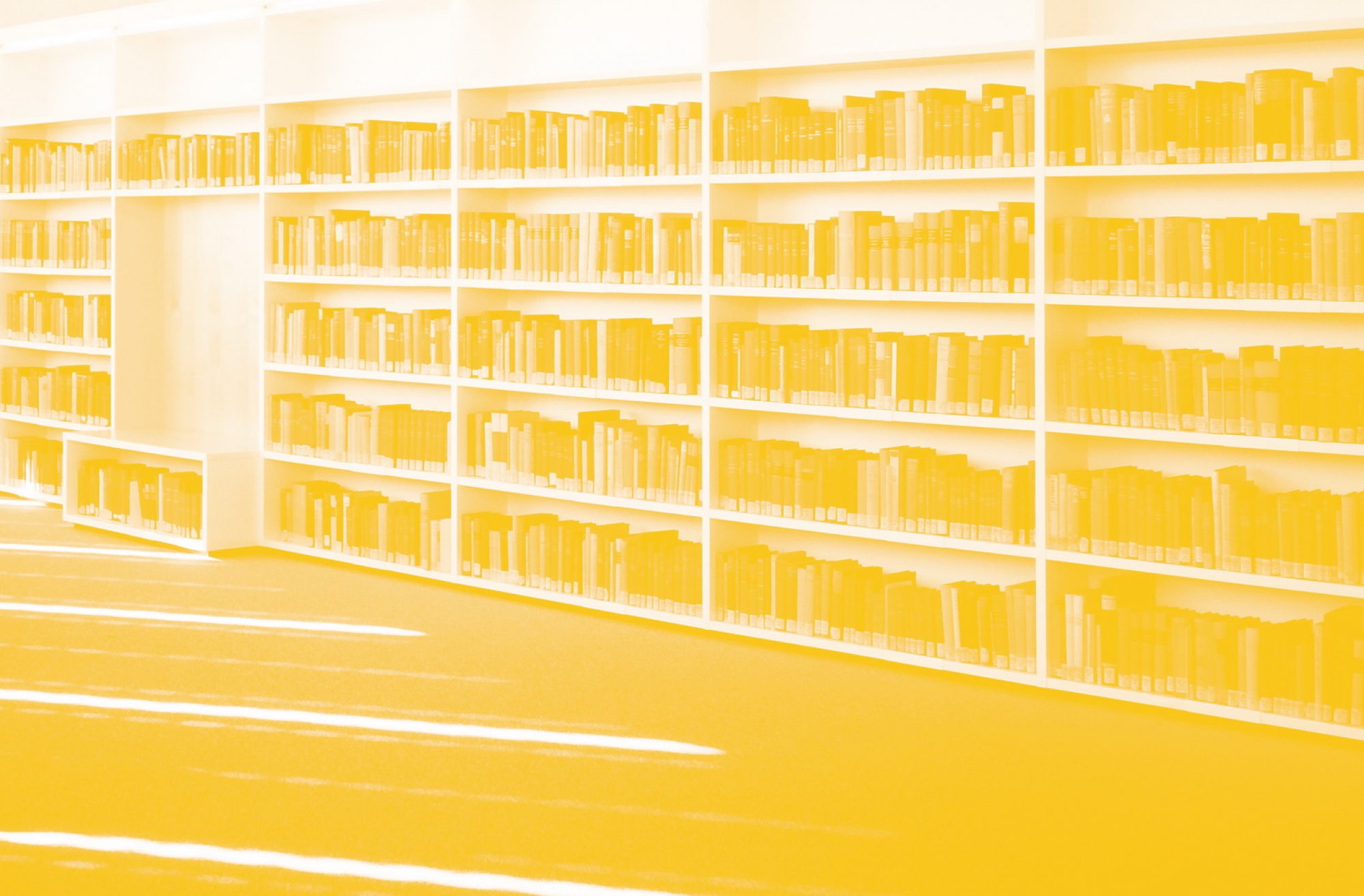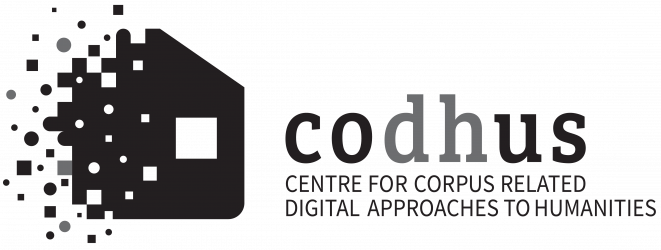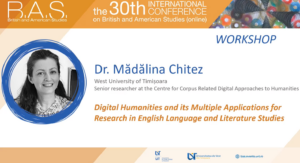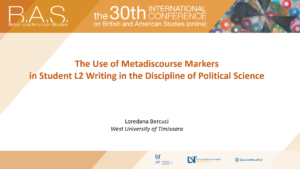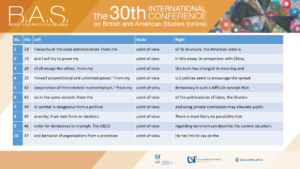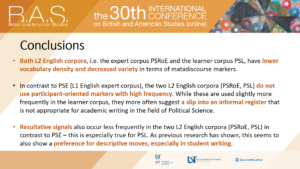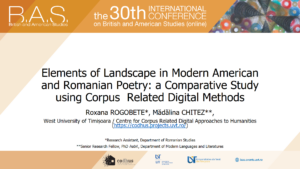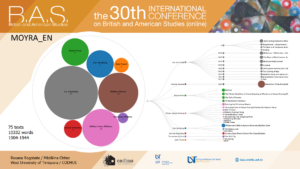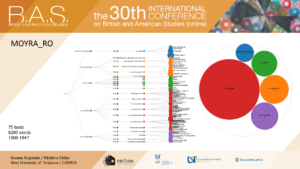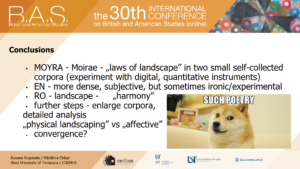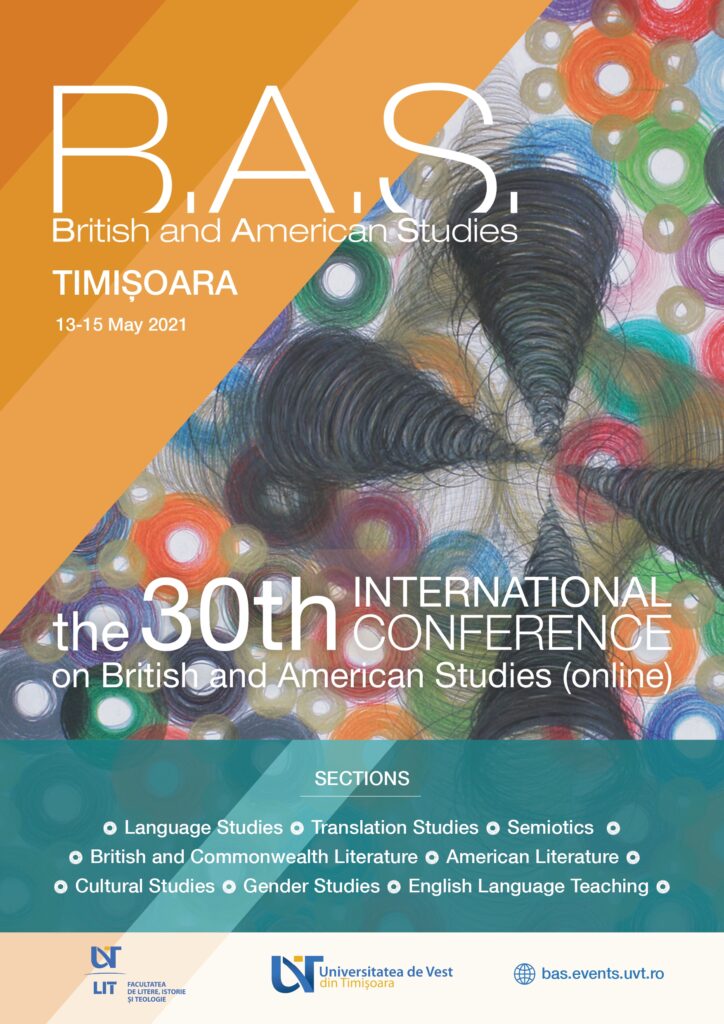13th-15th May 2021, conference presentations at International Conference British and American Studies, Virtual Edition
At the International Annual Conference BAS (British and American Studies, 30th Edition), organized by the Department of Modern Languages and Literatures at the Faculty of Letters, History and Theology at UVT, from 13 to 15 May 2021, Dr Mădălina Chitez held a workshop as an invited plenary speaker, with the following topic: Digital Humanities and its Multiple Applications for Research in English Language and Literature Studies.
Abstract:
The field of Digital Humanities (DH) is evolving at a reality-triggered accelerated pace. Its multiple facets have been long exploited by researchers in various disciplines, DH being “a cross-disciplinary field by its very nature, integrating knowledge and approaches from several disciplines, derived either from the humanities (such as languages, literature, history, and arts) or the information technology spectrum” (Chitez et al, 2020, p. 546). Although particular attention has been given by the DH scientists to the digital preservation of textual sources and adjacent cultural assets (i.e. images, artefacts), recent developments in technology-supported language and literature studies have made it possible for researchers in the humanities to integrate rather traditional topics into new applied DH related methodologies. In this workshop, Dr. Mădălina Chitez, from CODHUS – Centre for Corpus Related Digital Approaches to Humanities, recently founded at the West University of Timisoara, will introduce several of the possible methods which researchers interested in English language and literature themes can implement in their studies, using already available data or creating their own digital resources. Reference will be made to corpora for teaching English language (general English and ESP), English academic writing, analysis models for corpus supported literature studies, translation databases and English language interdisciplinary topics (e.g. journalism, political studies, cultural studies). The workshop includes hands-on exercises with method specific tools and discussions on adaptations for teaching.
Presentation excerpts:
At the same conference, ROGER researchers presented the following papers:
(1) Loredana Bercuci presented the paper The Use of Metadiscourse Markers in the Case of Students of Political Science in L2
Abstract: The present study analyzes the use of lexical bundles representing metadiscourse markers in the discipline of Political Science. The focus will be on a learner corpus of undergraduate and graduate student writing in Political Science. I thus reveal the discipline-specific inter-language interference of L1 Romanian into L2 writing in English and indicate issues on which targeted writing exercises should focus during university-level English for Specific Purposes and English for Academic Purposes classes.
Presentation excerpts:
(2) Roxana Rogobete and Mădălina Chitez presented the paper Elements of Landscape in Modern American and Romanian Poetry: a Comparative Study using Corpus Related Digital Methods
Abstract: The paper is a comparative study of American and Romanian modern poetry. The data consist of two selfcompiled modern-poetry corpora representing authors like Wallace Stevens, e.e. cummings, William Carlos Williams, for American literature (MOYRA_AM), or Lucian Blaga, Ion Vinea, Alexandru Philippide, for Romanian samples (MOYRA_RO). Since the faces of Modernism expressed in the aforementioned cultures are various, we explore how several elements of landscape are depicted. We use digital tools to analyse structures, the complexity of language and stylistic features. Although the corpora are relatively small (75 texts each), they consist of suggestive samples from the first half of the 20th century lyrical works, whereas the quantitative approach is more relevant here and replicable in other studies, in order to shed light on several stylistic and linguistic patterns.
Presentation excerpts:
The conference programme and abstracts can be viewed here.
More information about the conference here.
The poster of the event:
